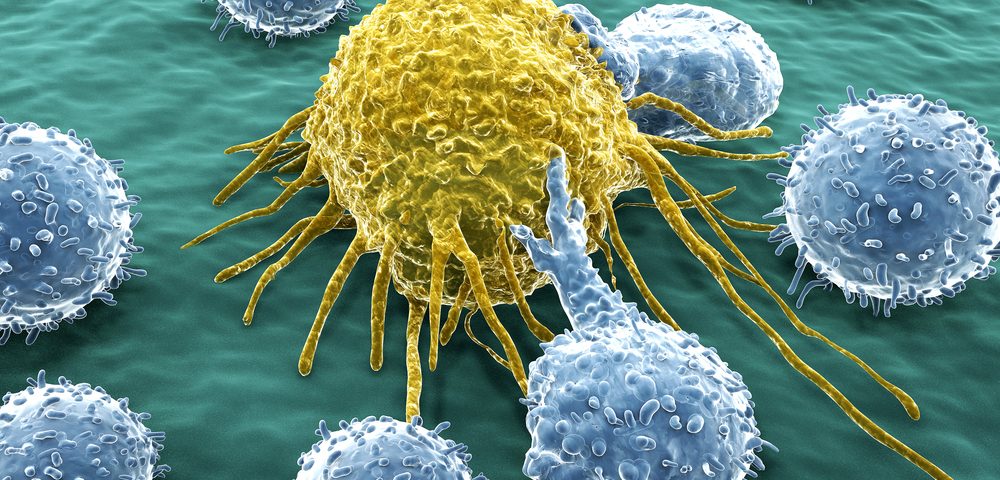Ovarian cancer cells are able to use glycogen — a complex sugar molecule used for long-term energy storage — as a source of energy to grow and invade other tissues, leading to the formation of metastases, a study reveals.
The process relies on the activation of a protein — called p38a MAPK — in cancer-associated fibroblasts (CAFs), a type of cell that supports the growth and spreading of cancer cells. Researchers discovered that blocking this protein prevented cancer cells from using glycogen and metastasizing.
Findings of the study, “Fibroblasts Mobilize Tumor Cell Glycogen to Promote Proliferation and Metastasis,” were published in Cell Metabolism.
Up to 80 percent of women with ovarian cancer show signs of the disease spreading to the omentum — a large apron of fat covering the intestines — at the time of diagnosis. It is known that once these malignant cells reach the omentum and reduce the number of fat cells there, they start to grow and spread to other tissues at a much faster pace. But the mechanisms underlying this process are still unclear.
A team of researchers at the University of Chicago Medicine, together with international collaborators, have now conducted a systematic study to investigate how ovarian cancer cells grow and spread once they reach the omentum.
Cancer-associated fibroblasts are a major component of the tumor environment and have been shown to promote changes in cancer cells that make them more aggressive and increase their ability to spread.
Therefore, the team sought to shed some light on the molecular aspects of CAF-cancer cell interactions.
When scientists grew ovarian cancer cells together with CAFs in the same lab culture dish, they found that cancer cells induce the activation of p38a MAPK in CAFs, which then promotes the mobilization of glycogen to cancer cells.
Glycogen broken down into small sugar molecules is then used as an energy source to increase cancer cell growth and spread to other tissues.
“This is the first time that the role of glycogen in cancer metastasis has been thoroughly investigated,” Ernst Lengyel, MD, PhD, the Arthur L. and Lee G. Herbst Professor and Chairman of Obstetrics and Gynecology at the University of Chicago and the study’s senior author, said in a press release.
Researchers also found that depleting p38a MAPK from CAFs and inhibiting glycogen phosphorylase — an enzyme involved in glycogen mobilization — in ovarian cancer cells significantly reduced the formation of metastases, confirming that glycogen is indeed used by cancer cells as an energy source to hasten their growth and spread to other tissues and organs.
Blocking PGM1 — a key enzyme that breaks down glycogen into small sugar molecules — led to similar outcomes.
“Here, we show that the bidirectional signaling between cancer cells and stromal CAFs triggers a metabolic switch in the cancer cells, turning off glycogen synthesis and prompting glycogen utilization,” the researchers wrote.
“Therefore, blocking glycogen mobilization in cancer cells with glycogen phosphorylase or PGM1 inhibitors might be a therapeutic strategy for the reduction of tumor dissemination in abdominally metastasizing cancers (e.g., ovarian, gastric, pancreatic, and colon cancer) after optimal cytoreduction [tumor reduction],” they added.

